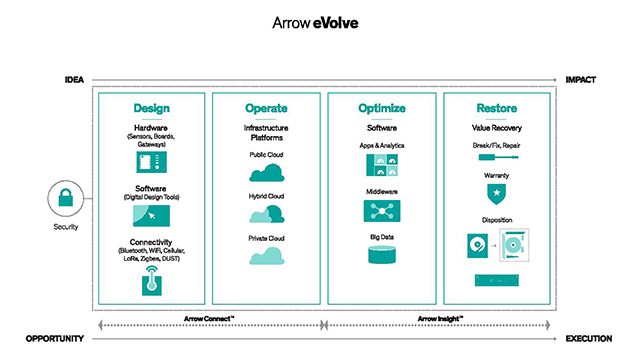Arrow Electronics, on My 29 announced its collaboration with AIRmaker, a Singapore-based Internet of Things (IoT) accelerator, to support AIRmaker’s goals of helping startups achieve their business objectives. As a technology advisor, Arrow will help AIRmaker program startups become more effective and productive in their idea-to-impact product journey through overcoming technical challenges and gaining critical IoT technology know-how, to turn a design into a product ready to be manufactured.
Asia Pacific is set to be at the forefront of IoT, with the number of connected devices expected to increase from 3.1 billion to 8.6 billion by 2020, creating a US$583 billion market opportunity, according to IDC. Another study conducted by Telenor Group which surveyed technology enthusiasts in Asia revealed that more than a third (38 percent) are most likely to create an IoT startup this year, the highest percentage among other startup trends. This presents an opportunity for Arrow and AIRmaker to grow its business offerings in the IoT startup area in Asia Pacific.
As part of this collaboration, Arrow will provide AIRmaker’s program participants online and offline end-to-end technology, design-to-manufacturing expertise, and support at overcoming technical challenges. This includes a complete range of collaborative online e-tools, and one of the world’s largest online databases of reference designs and component information via Arrow’s e-commerce site. Startups will also gain access to Arrow’s professional advice and technical counsel throughout the development cycle from formulation and proof-of-design concept, component sourcing, rapid prototyping, and testing to system integration and pre-manufacturing verification.
As the only global technology company capable of providing comprehensive, sensor-to-sunset full IoT product lifecycle solutions, Arrow is uniquely positioned to guide the biggest names in technology, and startups and makers alike, along their IoT production journey. For many years, Arrow has been supplying many of the key components of an IoT infrastructure, including sensors, low-power microcontrollers, wireless connectivity systems, network protocols, gateways, operating systems, security solutions, big data platform management systems, cloud solutions, and tools for device management and data analysis.








